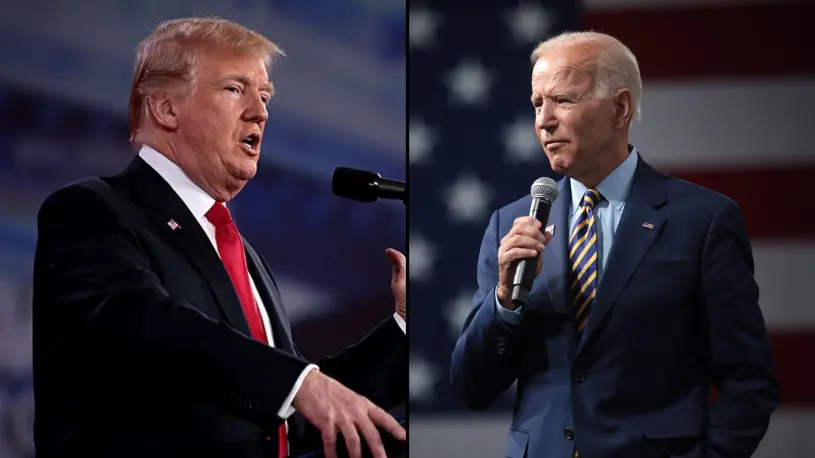For many years, Michigan, Wisconsin, and Pennsylvania have been pivotal in determining the outcome of presidential elections. In the summer of 2020, during the COVID-19 pandemic, significant majorities in these states expressed dissatisfaction with their local economies. At that time, President Donald Trump was behind in the polls and eventually lost these tightly contested states to Joe Biden.
Four years later, as the 2024 election approaches, not much has changed. Biden, now the incumbent, and Trump are once again the candidates, with the races being closely contested and public sentiment on the economy still largely negative. This unfavorable economic outlook continues to impact Biden’s presidency.
The election campaign this summer is likely to center on which candidate is perceived as the lesser of two evils, with both candidates inspiring more worry and insecurity than confidence and security, alongside widespread frustration.
With inflation looming large in their minds, most voters don’t say there’s even been improvement in their state’s economy post-pandemic: only a quarter say it has improved in the years since, with about half saying it has actually gotten worse.
The current choice between Biden and Trump primarily evokes negative emotions such as worry and anger. Twice as many voters report feeling worried about Biden compared to those who feel secure or confident in his leadership. He is also perceived as less confidence-inspiring and secure compared to Trump.
On the other hand, Trump tends to provoke stronger feelings of anger, which in turn fuels resistance against him. This opposition plays a significant role in keeping Biden competitive in the races, despite negative perceptions of the economy.
RealClearPolling has both Biden and Trump tied at 43, while fivethirtyeight has Trump leading at 41.9% to Biden’s 40.7%.
With the election still more than six months away, a new Pew Research Center survey finds that the presidential race is virtually tied: 49% of registered voters favor Donald Trump or lean toward voting for him, while 48% support or lean toward Joe Biden.
A defining characteristic of the contest is that voters overall have little confidence in either candidate across a range of key traits, including fitness for office, personal ethics and respect for democratic values.
In addition, according to the Pew survey, reflecting their dissatisfaction with the Biden-Trump matchup, nearly half of registered voters (49%) say that, if they had the ability to decide the major party candidates for the 2024 election, they would replace both Biden and Trump on the ballot.
Biden’s supporters are especially likely to say they would replace both candidates if they had the chance. Roughly six-in-ten (62%) express this view, compared with 35% of Trump supporters.
• 42% of voters overall say Trump was a good or great president, while 11% say he was average. This is a modest improvement since March 2021, two months after he left office.
• 28% of voters say Biden is a good or great president, while 21% say he is average. These views are mostly on par with June 2020 assessments of the kind of president Biden would be – but today, a smaller share of voters say he is average.
According to a recent Gallup poll, Biden averaged 38.7% job approval during his recently completed 13th quarter in office, which began on Jan. 20 and ended April 19. None of the other nine presidents elected to their first term since Dwight Eisenhower had a lower 13th-quarter average than Biden.
Biden is hoping U.S. voters reward him with a second term, but needs some positive momentum to put him in a stronger position to be reelected. However, that didn’t occur during the past three months, with Americans no more positive about how Biden is doing his job than they were in his prior quarter, or for most of the past three years. This is the case even after Biden delivered his election-year State of the Union speech in March, a chance for him to sell his accomplishments directly to the American people.
With about six months remaining before Election Day, Biden is in a weaker position than any prior incumbent, and thus faces a taller task than they did in getting reelected. He and his team will need to do better if they hope to win a second term and keep Trump out of the White House.
